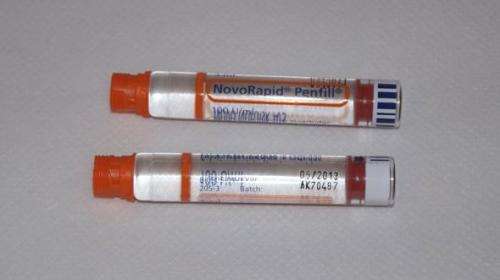Widespread diabetes screening in India is predicted to be ineffective

Large-scale screening for diabetes in India using currently available survey- and glucometer- based screening tools is unlikely to meet effectiveness criteria, according to a modeling study published this week in PLOS Medicine. The predictions of this simulation, conducted by Sanjay Basu of Stanford University and colleagues, suggest that large numbers of false positive results would waste financial resources, and that focusing on symptom-based screening and on improvements to diabetes treatment might better serve India's population.
Diabetes is becoming increasingly common, particularly in rapidly developing countries like India, but most people with diabetes are unaware that they have the condition. Here, the researchers develop a microsimulation model (a computer model that operates at the level of individuals) to investigate the implications of using alternative screening instruments to identify people with undetected diabetes across India. Depending on which approach was used for screening, between 158 million and 306 million of the 567 million Indians eligible for screening would be referred for confirmatory testing. However, between 126 million and 273 million of these high-risk individuals would be false positives; only between 26 million and 37 million would meet the international diagnostic criteria for diabetes. The researchers estimate that the cost per case found would vary from US$5.28 (for random glucose screening) to US$17.06 (for a survey-based screening instrument). Finally, they estimate that the total cost for screening the eligible population would be between US$169 and US$567 million.
The findings of poor test specificity are consistent with results from small, regional trials in India. Here, study limitations include the uncertainty of modeling a large, diverse population and of forecasting costs. The authors state, "Improving instruments to reduce false positive screens, preparing the health system for very substantial confirmatory testing demands, and identifying how to deliver efficacious treatment, are three priority areas that require urgent attention before rapidly-developing countries implement large-scale community-based diabetes screening programs."
More information: Basu S, Millett C, Vijan S, Hayward RA, Kinra S, et al. (2015) The Health System and Population Health Implications of Large-Scale Diabetes Screening in India: A Microsimulation Model of Alternative Approaches. PLoS Med 12(5): e1001827. DOI: 10.1371/journal.pmed.1001827


















